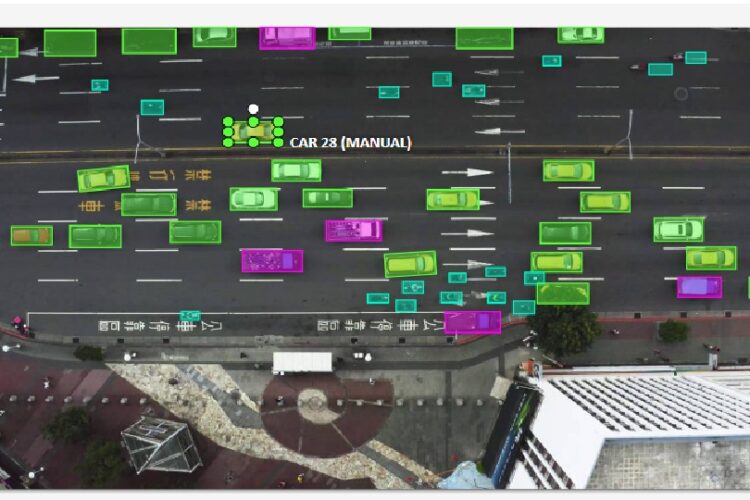The Importance of Data Annotation and Labeling in Modern Image Solutions
In today’s digital landscape, the demand for precise and high-quality image data is more critical than ever. The role of data annotation and labeling in modern image solutions extends far beyond simple categorization—it’s the backbone of artificial intelligence (AI) and machine learning (ML) models that rely on accuracy and comprehensive data to perform at optimal levels. This blog delves into why data annotation and labeling are essential in modern image solutions and how businesses, especially those in the eCommerce, automotive, healthcare, and tech industries, benefit from these services.

What is Data Annotation and Labeling?
Data annotation and labeling involve the process of tagging and categorizing data within images to make them recognizable to AI and ML algorithms. Various methods can be used in this process, including:
- Bounding Boxes: Highlighting specific objects within an image for object detection.
- Semantic Segmentation: Dividing an image into regions for detailed analysis.
- Polygonal Annotation: Outlining complex shapes for high-precision tasks.
- 3D Cuboid Annotation: In autonomous vehicles, labels are essential for depth perception.
These processes teach AI models to identify, interpret, and react to real-world objects and scenarios with high accuracy.
Why is Data Annotation and Labeling Crucial?
The success of AI models is contingent on the quality of the data they are trained with. Here’s why data annotation and labeling hold immense importance:
a. Improving Model Accuracy
AI models trained on well-annotated data have significantly higher accuracy. Proper labeling helps these models recognize patterns and make correct decisions in diverse scenarios, from identifying products in an eCommerce image catalog to detecting anomalies in medical imaging.
b. Reducing Bias and Errors
High-quality annotation ensures that the data used to train AI models is representative of real-world conditions, reducing biases and potential errors in the model's decision-making process. Balanced and precise labeling is essential for fairness and reliability in automated solutions.
c. Accelerating AI Development
Annotated data accelerates the development process of AI models by providing clear, actionable training material. This allows companies to deploy new AI solutions more quickly and stay ahead of competitors in their respective industries.
Applications of Data Annotation and Labeling
Data annotation and labeling find their place in various sectors:
- Autonomous Vehicles
Self-driving cars rely on annotated data to identify pedestrians, vehicles, road signs, and other critical elements of the driving environment. Proper labeling helps these vehicles make split-second decisions that are crucial for safety. - Healthcare
Medical imaging relies on annotated data for training models to detect and diagnose conditions like tumors or fractures. Accurate data labeling ensures AI systems can assist healthcare professionals with greater precision, contributing to better patient outcomes. - eCommerce
Image annotation enhances the shopping experience by enabling AI to recognize and categorize products. This leads to better product search and recommendation algorithms, making it easier for customers to find what they need and boosting conversion rates for online retailers. - Surveillance and Security
Security systems equipped with AI can recognize and differentiate between suspicious and normal activities due to high-quality image labeling. This capability helps bolster public safety and enhance surveillance effectiveness.
Challenges in Data Annotation and Labeling
Despite its significance, data annotation comes with its challenges, including:
- Time-Consuming Processes: Manually annotating large datasets is labor-intensive and requires a dedicated team.
- Need for Expertise: Proper labeling often requires subject matter expertise to ensure accuracy.
- Consistency: Maintaining consistency across large datasets can be difficult without a robust quality assurance process.
Why Outsource Data Annotation Services?
Outsourcing data annotation and labeling to specialized service providers like Outline Media Solutions ensures that businesses get high-quality, expertly labeled data without the burden of managing in-house teams. Here’s why partnering with a professional service provider can be advantageous:
- Scalability: Outsourced teams can scale operations based on the volume of data needed.
- Expertise: Specialized providers have the tools and expertise to handle complex annotation tasks.
- Cost-Effective: Outsourcing can be more cost-efficient than training and maintaining an in-house team, especially for businesses that require periodic annotation work.
Outline Media Solutions’ Approach to Data Annotation
Outline Media Solutions is committed to delivering top-tier data annotation and labeling services. Our approach includes:
- Comprehensive Tools and Techniques: We use cutting-edge software to ensure accurate and detailed data labeling.
- Expert Team: Our experienced professionals specialize in a variety of annotation types, from basic bounding boxes to advanced semantic segmentation.
- Quality Assurance: Each project goes through stringent quality checks to maintain consistency and accuracy across datasets.
- Customized Solutions: We tailor our services to meet the unique needs of different industries, ensuring that our clients receive solutions that match their specific requirements.
Conclusion
Data annotation and labeling are the unseen heroes behind the rapid advancements in AI and machine learning. Their role in modern image solutions is pivotal, bridging the gap between raw data and intelligent decision-making systems. By partnering with experts like Outline Media Solutions, businesses can harness the full potential of well-labeled data, paving the way for innovative, efficient, and impactful AI solutions.
Whether you’re looking to train an AI model for autonomous driving, streamline eCommerce product categorization, or enhance medical imaging diagnostics, investing in high-quality data annotation and labeling services is the key to success in today’s competitive, tech-driven world.

Comments
Post a Comment